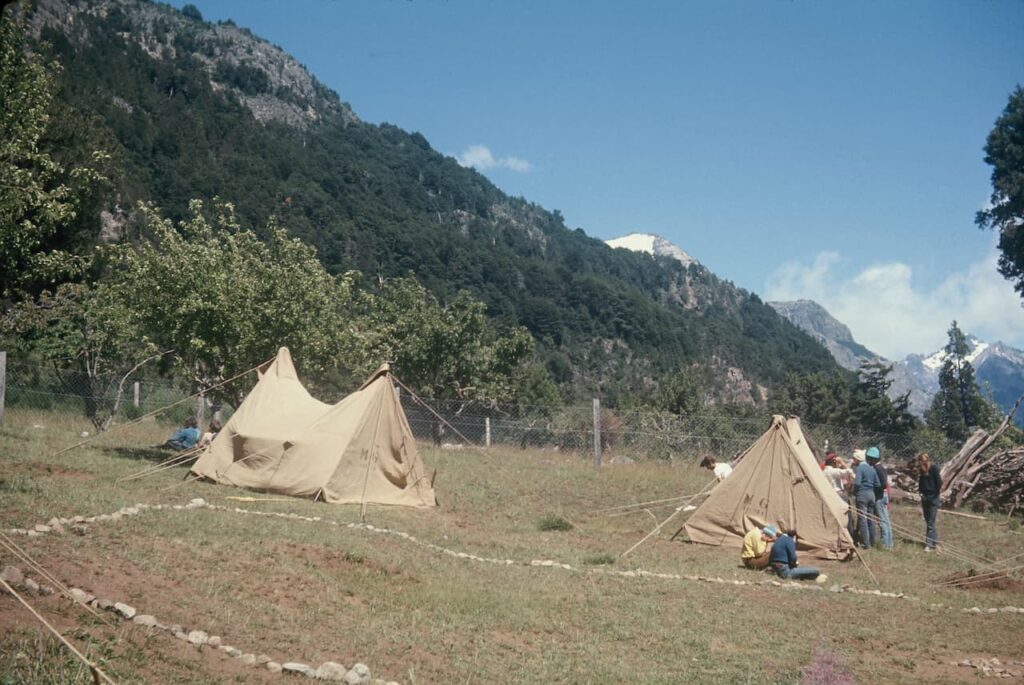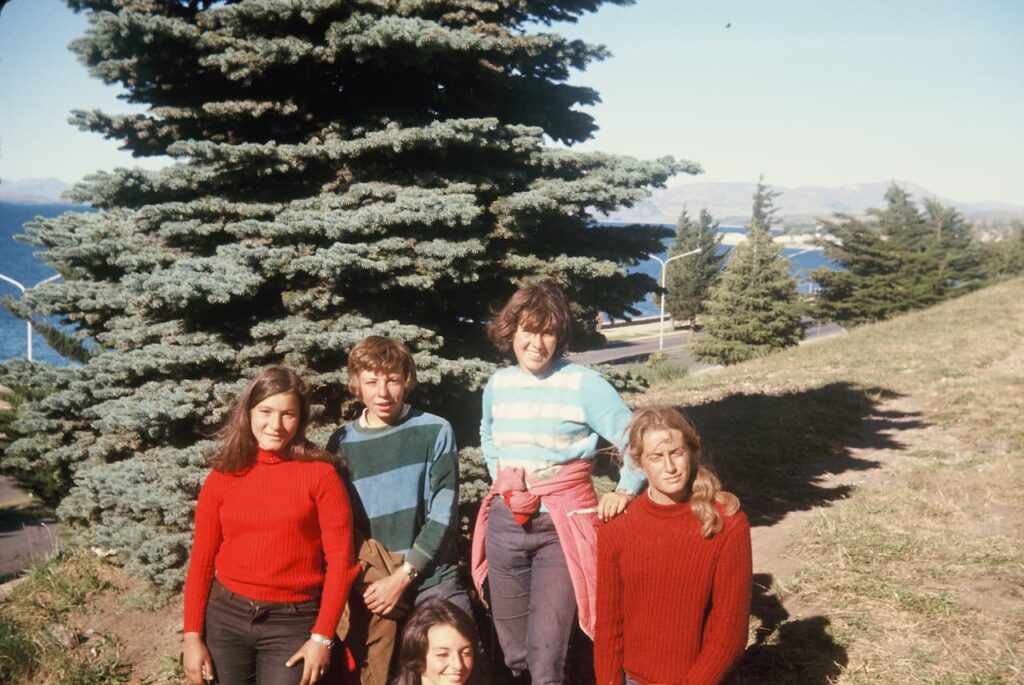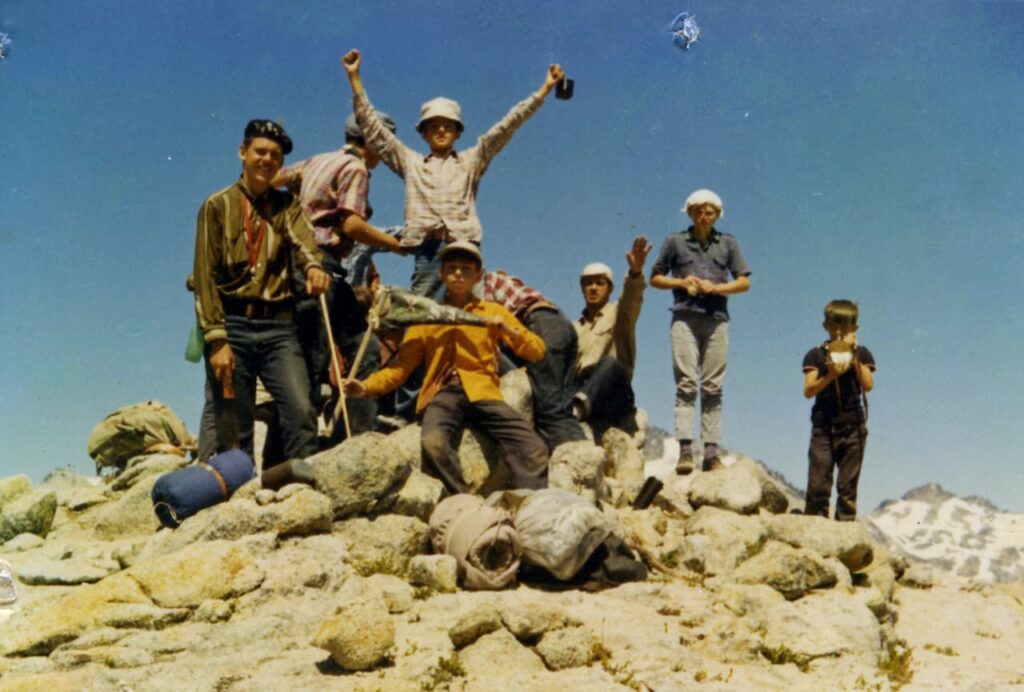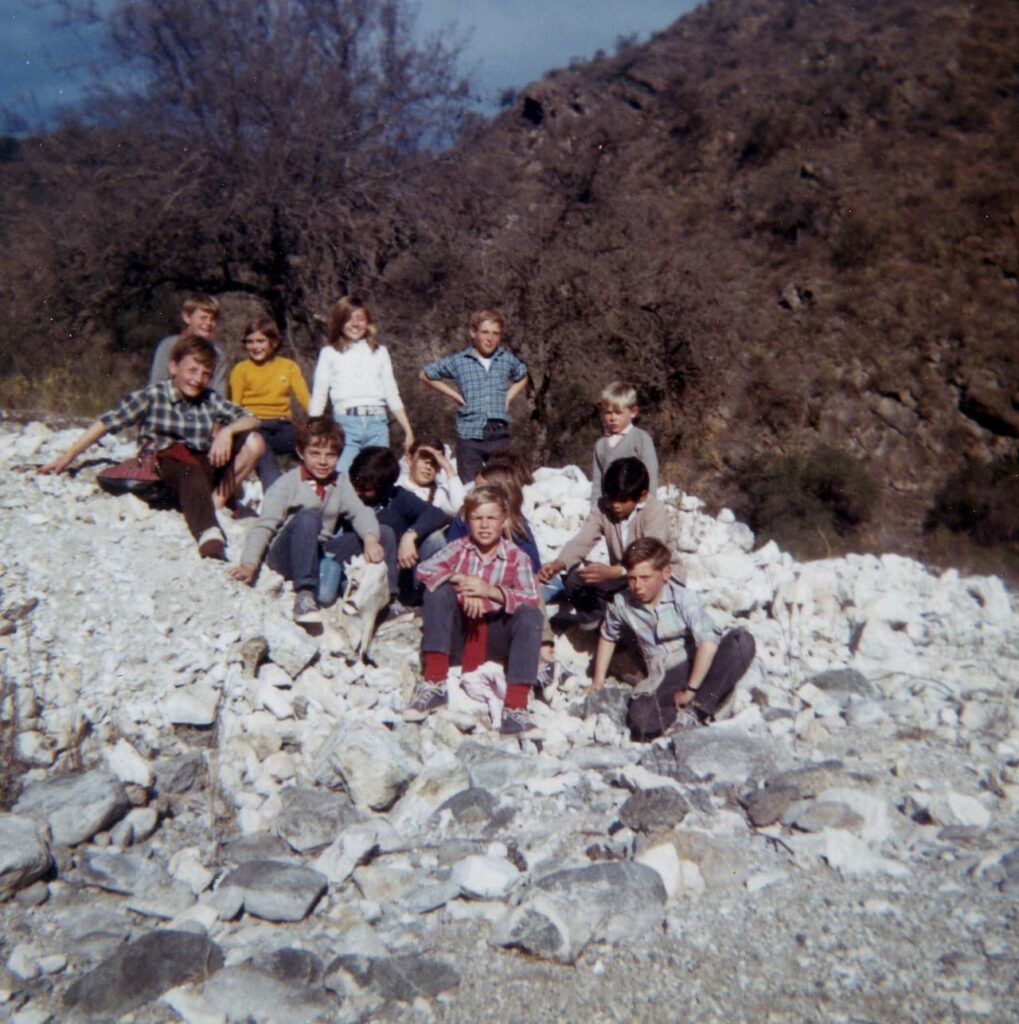When I was ten or eleven, I went for a week of holidays to Tandil, a small town about 400 km south of Buenos Aires. I was there with a small group of friends and their parents. Every day, we would go on long horseback treks. The boy who took care of the horses was about 15 or 16, and I enjoyed helping him with the horses. After we were done tying up and feeding the horses, we would sit by the barn and talk. One day he asked me whether I had already kissed anyone. No, I said. Would you like to practice? he said. Yes, I responded. From then on, every afternoon, we would sit by the barn and kiss passionately. Nothing more happened and when I returned to Buenos Aires, I never heard from him again.
A few years later, one of my first girlfriends asked me if she was the first person I had ever kissed. ‘No,’ I said. ‘Who was the first?’ she wanted to know. ‘It was a boy in Tandil,’ I said. The words just tumbled out of my mouth. As soon as I said them, we both realised what I just said, and there was an embarrassed silence. Neither of us spoke about it again (perhaps she thought she hadn’t heard quite right, or perhaps she preferred not to have understood).
It was many years later, when I took a course in Princeton on gender and gender roles, that I understood that sexuality is not an absolute, but a continuum and that it is not at all unusual, especially in the prepubertal years, to experiment in one direction or the other. There is no question that as an adult I’m strongly heterosexual, but that was probably not the case when I was ten or eleven. In any event, today I recall my first passionate kisses in Tandil as happy and tender moments.
Perhaps because I was born in a part of the world that is totally flat and where only the occasional tree disturbs the skyline, I was always fascinated by mountains. I would welcome any occasion to spend time in the Andes, and as a child my favourite place was the area of Bariloche, where my brother Edi would buy a magnificent property many years later.
In the 1960s and 1970s, it took about two or three days to reach Bariloche by bus. Once there, you were in virgin territory. A few roads and walking paths existed, but most of the time you had to find your way by yourself, with the help of topological maps (which were difficult to find in Buenos Aires) and rudimentary compasses. There was, of course, no food to be purchased during the time you were trekking, so mostly we ate from tins of corned beef and cooked plain spaghetti with a bit of salt. Occasionally, one of us would catch a fish in one of the many lakes (at the time, there were no restrictions on fishing, as there are now). At night, we wrapped our sleeping bags in plastic bags; the tents we slept in had no bottoms, so if they were set up on land that was slightly inclined (which was almost always the case), the person closest to the end of the tent would inevitably slide out, and spend the rest of the night sleeping in the open.
The worst part of the campamento was washing, which had to be done in the icy-cold water of the lakes. I tried to avoid it and, after three weeks I looked like a cave-man. But Bariloche and the exhilarating experience of reaching mountain tops stayed with me and was certainly one of the main reasons why living in Switzerland became so attractive to me later in my life.
Paul thought that giving me responsibility with money at an early age was very important. So, from the age of seven onwards my Dad gave me, initially a weekly, then a monthly allowance. At the beginning of each school year, my father and I would sit down and make a list of my likely cash outlays (a sandwich for lunch, an alfajor for the way home, a birthday present for Annie, etc.). He would help me calculate the total and then hand me the money at regular intervals.
There was no additional money for me during the agreed timeframe (usually a year), but if I had not consumed the funds, I was allowed to keep them and either spend the money on anything I liked, or deposit it in a bank account. It was a great way to make me conscious of how to keep a budget and taught me how to set priorities. It explains why I have never been short of money, no matter what my income, and why none of the companies I founded had any financial problems or required bank loans. From the age of seven onwards, I learned how to make accurate calculations of my outlays, and how to spend in a sustainable way. It’s a system that I applied with my kids too, with similar results—they have always been careful with money and there were never situations where I had to rescue them financially.
The River
Pedro Simko

The River
Pedro Simko




